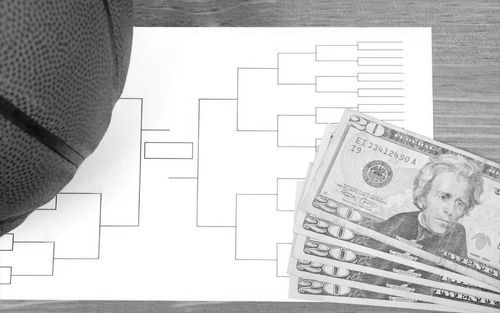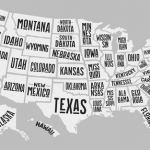Imagine you get into a huge winner-take-all pool for March Madness. A single bracket costs $25 a person, and 1,000 people enter. You pay your money. You even shake hands on the deal with the pool manager. After the nets are cut, Jim Nantz does his thing, and One Shining Moment plays, you’ve won the whole thing. Twenty-Five Thousand dollars.
But wait. The pool manager isn’t replying to emails. He won’t return your phone calls. You’re hearing he ran to Las Vegas, put it all on red, and it hit black. He’s not going to pay you your winnings.
You don’t just want your $25 back, you want your entire $25,000. Is North Dakota law on your side? More specifically, can you sue him in civil court to get it back?
Whether you knew it or not, you made (or attempted to make) a contract. Gambling is a type of contract. Whether or not it’s an enforceable contract is the issue.
The North Dakota Supreme Court has unusually entertaining precedents related to a gambling contract. In Meyer v. Hawkinson, 2001 ND 78, ¶ 11, 626 N.W.2d 262, two couples allegedly pooled their money to purchase lottery tickets in Winnipeg with the understanding they would split the winnings 50/50. One ticket hit for $1.2 Million. The couple who bought the winning ticket did not share the payout. A dispute arose. Their forty-year friendship ended. The non-winning couple sued the winning couple on a breach of contract theory. The District Court dismissed the claim, holding that even if there was an agreement to share 50/50, the agreement would not be enforceable under North Dakota law. The decision was appealed to the North Dakota Supreme Court.
The Supreme Court Outlined The Relevant North Dakota Law
Gambling differs from other business transactions, and ordinary remedies usually are not available to enforce gambling debts. Hochhalter v. Dakota Race Mgmt., 524 N.W.2d 582, 584 (N.D. 1994). It is essential to the existence of a contract to have a lawful object. N.D.C.C. § 9–01–02. A contract is void if the consideration given for the contract is unlawful. N.D.C.C. § 9–05–04. A contract is unlawful if it is (1) contrary to an express provision of law; (2) contrary to the policy of express law, although not expressly prohibited; or (3) otherwise contrary to good morals. N.D.C.C. § 9–08–01.
Meyer, 2001 ND 78, ¶ 11, 626 N.W.2d 262.
At the time of the alleged lottery contract, lotteries were illegal in North Dakota. The Supreme Court held that if the alleged contract were entered into in North Dakota, it would violate the express law against lotteries, and thus would be void. Going a step further, the Supreme Court also found it was void as against public policy. Even if it were a Canadian contract, a North Dakota Court could not enforce it because lotteries were against public policy. The Supreme Court upheld the dismissal.
What Does This Mean For You?
Chapter 12.1-28 of the North Dakota Century Code provides for classification for gambling offenses. If you had wagered over $25 in the pool, it would have been an “infraction” and likely voided the contract. If you had wagered over $500, it would have been a Class A misdemeanor, and the contract certainly would be void. Your $25 wager does not appear to be illegal under North Dakota law. Arguably, the Meyer precedent does not void your contract, as the Supreme Court focused only on the North Dakota law and public policy (and not federal or foreign public policy). So, you might be able to use the North Dakota Civil Court system to recover your money. You’d have an argument that the plaintiffs in Meyer did not have.
One huge caveat: this analysis is just for fun. We don’t promote gambling, and you shouldn’t gamble because of this blog article. This conduct is also likely illegal under federal law. We write about the lighter side of contracts because contracts can be boring and you wouldn’t read about it. On the serious side, though, we know these obscurities because we know contracts. If you have any contract drafting needs, call our Business Law Team at 701-297-2890 or send us an email below.










